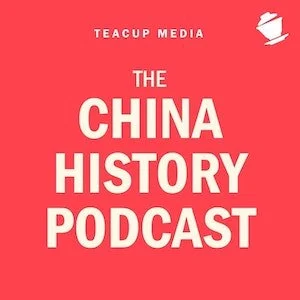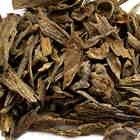Ep. 284 | The Taiping Rebellion (Part 5)
We're going to wind things up here in this episode. 1863-1864, the bitter and bloody end of the Taiping Rebellion. Charles George Gordon has his walk-on but Zeng Guofan and brother Zeng Guoquan take the limelight in the ultimate showdown with the Taiping holdouts. When it was all over the Taiping Rebellion ended up having quite a consequential impact on China's trajectory into the 20th century. We'll close things up by looking at the historical blowback from this terrible civil war.
As always, the terms from the episode are listed below, or available to download!
Listen On Your Favorite Podcast Player
Terms in Episode
| Pinyin/Term | Chinese | English/Meaning | ||
|---|---|---|---|---|
| Liáng Āfā | 梁阿发 | The second Chinese to convert to Christianity. He lived 1789-1855. | ||
| Hóng Xiùquán | 洪秀全 | 1814-1864, Chinese revolutionary and leader of the Taiping Rebellion. Claimed to be God's son and the younger brother of Jesus Christ | ||
| Féng Yúnshān | 冯云山 | 1821-1856, The Eastern King of the Taiping Heavenly Kingdom. He had a direct pipeline to the Lord God | ||
| Wǔchāng | 武昌 | City in Hubei Province that forms part of Wuhan | ||
| Nánjīng | 南京 | Capital of Jiangsu Province and a city with great historical significance throughout China's history. During the Taiping Rebellion the city was renamed Tianjing | ||
| Qīng | 清朝 | The Qing Dynasty 1644-1911 | ||
| Jiāngsū | 江苏 | Coastal City just north of Zhejiang | ||
| Zhèjiāng | 浙江 | Coastal city just south of Jiangsu | ||
| Suí Yángdì | 隋炀帝 | The second and last Sui Dynasty emperor, son of founder Sui Wendi | ||
| Tiānjīng Incident | 天京事变 | A political shakeupat the top of the Taiping political leadership that happened from September 2 to October 1856 | ||
| Zēng Guófān | 曾国藩 | 1811-1872, Chinese statesman and military general of the late Qing dynasty. He is best known for raising and organizing the Xiang Army to aid the Qing military in suppressing the Taiping Rebellion and restoring the stability of the Qing Empire | ||
| Lǐ Hóngzhāng | 李鸿章 | 1823-1901, Chinese politician, general and diplomat of the late Qing dynasty. He quelled several major rebellions and served in important positions in the Qing imperial court, including the Viceroy of Zhili, Huguang and Liangguang. | ||
| Zuǒ Zōngtáng | 左宗棠 | 1812-1885, admired Chinese statesman and military great. His prowess on the battle field kept the Qing Dynasty in business for many more years | ||
| Kāngxī | 康熙帝 | Qing Emperor who reigned from 1661-1722 | ||
| Zēng Guóquán | 曾国荃 | Brother of Zeng Guofan and major figure in the Xiang Army | ||
| Tàibó of Zhōu | 泰伯 | Lived around 1150 BC, Taibo was eldest son of King Tai of Zhou and the legendary founder of the State of Wu | ||
| Shāng Dynasty | 商朝 | Chinese dynasty that ran approximately 1600 to 1046 BC | ||
| Níngbō | 宁波 | City on the Zhejiang coast just south of Shanghai | ||
| Cíxī | 慈溪 | City just west of Ningbo in Zhejiang Province | ||
| Lǐ Shìxián | 李世贤 | Taiping general, 1834-1865. He played a front and center role in the later years of the Rebellion | ||
| Lǐ Xiùchéng | 李秀成 | 1823-1864, Taiping general who, along with Cheng Yucheng, played a front an center role during the final five years of the Rebellion | ||
| Sūzhōu | 苏州 | Major city in Jiangsu province, site of one of the final battles of the Taiping Rebellion | ||
| Battle of Jiǔfúzhōu | 九洑洲决战 | June 30, 1863, A decisive battle during the Taiping Rebellion | ||
| Huái Army | 淮军 | Named after China's Huai River. Also called the Anhui Army. It was led by Li Hongzhang and later became part of the New Army and later, the Beiyang Army | ||
| Shuāng Tǎ | 双塔 | The Twin Pagoda’s of Suzhou | ||
| Chángzhōu | 常州 | City in Jiangsu Province | ||
| Sìchuān | 四川 | Province in southwest China, capital is Chengdu | ||
| Shí Dákāi | 石达开 | 1831-1863, The Wing King of the Taiping Heavenly Kingdom. One of the five key leaders of the Taiping's. More of him in Part 3 | ||
| Zhū Dé | 朱德 | PLA Founder, major figure in PRC history. Lived 1886-1976 | ||
| Xiāng Army | 湘军 | Hunan Local militia founded by Zeng Guofan that went on to serve as a regional and later national fighting force. The Xiang Army was one of two armies known as the Hunan Army. Another Hunan Army, called the Xiang Army, was created by Zeng Guofan to fight in the Taiping Rebellion. Remnants of the Xiang Army which also fought in the war were then called the "Old Hunan Army" | ||
| Xīn Jūn | 新军 | Short for Xīnjiàn Lùjūn. 新建陆军, The New Army that was established in 1895 | ||
| Chǔ Army | 楚勇 | A standing regional army based in Hunan (Chu) organized by Zuo Zongtang (左宗棠). | ||
| Ānhuī | 安徽 | Province in central China | ||
| Lake Tài (Tài Hú) | 太湖 | Major lake in Jiangsu on the Zhejiang border. | ||
| Húzhōu | 湖州 | City in Jiangsu located on the shore of Lake Tai | ||
| Tiānguì Fú | 天贵福 | The Young Monarch, son of Hong Xiuquan and successor to his father as Heavenly King in 1864. | ||
| Hóng Réngān | 洪仁玕 | 1822-1864, the Shield King, cousin of Hong Xiuquan, tried to institute a whole slew of reforms but it was too much too late. | ||
| Tiānbǎo | 天保 | Qing fort on Purple Mountain that was occupied by the Taiping's during the War | ||
| Sìkù Quánshū | 四库全书 | Called "The Emperor's Four Treasures", it is the largest collection of books in Chinese History and meant to serve as a kind of archive.org of all known Chinese works | ||
| Dìbǎo | 地保 | Qing fort on the highest point on Purple Mountain that was occupied by the Taiping's during the War | ||
| Xuánwǔ Lake | 玄武湖 | Major lake in Nanjing located near the Nanjing Railway Station | ||
| Fāngshān | 方山 | Town located just south of Nanjing, in Jiangsu province | ||
| Zhāngzhōu | 漳州 | City in Fujian province | ||
| Nánchāng | 南昌 | Capital of Jiangxi Province | ||
| Jiāngxī | 江西 | Inland province in southeast China | ||
| Niǎn Rebellion | 捻乱 | an armed uprising that took place in northern China from 1851 to 1868, contemporaneously with Taiping Rebellion (1851–1864) in South China. The rebellion failed to topple the Qing dynasty, but caused immense economic devastation and loss of life that became major long-term factors in the collapse of the Qing regime in the early 20th century. | ||
| Miáo Rebellion | 苗乱 | The third of three rebellions centered in Guizhou Province that lasted 1854-1873 | ||
| Huí Rebellions | 云南会变 | Actually there were a series of Hui (Chinese Muslim) rebellions in the northwest (Xinjiang, Gansu, Shaanxi) and in the southwest in Yunnan (known also as The Panthay rebellion | ||
| Yúnnán | 云南 | Province in southwest China | ||
| Gānsù | 甘肃 | Province in Northwest China | ||
| Shǎnxī | 陕西 | Province in north China. Capital is Xian | ||
| Xīnjiāng | 新疆 | Province in northwest China just west of Gansu | ||
| White Lotus Rebellion | 川楚白莲教起义 | 1794-1804, a rebellion initiated by followers of the White Lotus movement during the Qing dynasty of China. Motivated by millenarian Buddhists who promised the immediate return of the Buddha, it erupted out of social and economic discontent in the impoverished provinces of Hubei, Shaanxi, and Sichuan. | ||
| Běiyáng Army | 北洋军 | Literally "North Ocean Army." This army served as the centerpiece of the Qing Dynasty's military modernization efforts. | ||
| Yuán Shìkǎi | 袁世凯 | Major military and political figure in early 20th century Chinese history. Called by many "The First Warlord" of the Warlord Era. He died in 1916 | ||
| Hàn | 汉朝 | Dynasty in China than ran 202 BC to 220 BC | ||
| Jìn | 晋朝 | Dynasty in China that an 266-420 | ||
| Táng | 唐朝 | Dynasty that lasted 618-907 | ||
| Sòng | 宋朝 | Dynasty that lasted (in two parts) from 960-1279 | ||
| Míng | 明朝 | Dynasty in China that ran 1368-1644 | ||
| King Zhòu Xīn | 商纣辛 | The final king of the Shang Dyansty, often held up as the poster boy for rotten rulers | ||
| Aisin Gioro clan (Àixīn Juéluó) | 爱新觉罗 | The ruling clan of the Manchu's who founded and ruled the Qing Dynasty (also the Later Jin (1616-1636) |
Resources
Books
God’s Chinese Son: The Taiping Heavenly Kingdom of Hong Xiuquan by Jonathan Spence
The Search for Modern China, 2nd Edition by Jonathan Spence
A History of Chinese Civilization by Jacques Gernet
Fall of Imperial China by Frederick Wakeman
The World of a Tiny Insect: A Memoir of the Taiping Rebellion and Its Aftermath by Zhang Daye

















his all took place in the final moments of the Warlord Era, right after the Central Plains War. This act perpetrated by warlord Sun Dianying 孙殿英 epitomized the venality of these men.